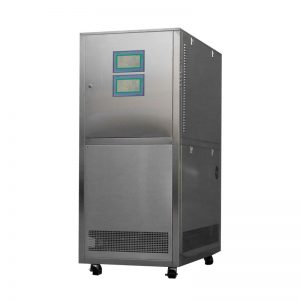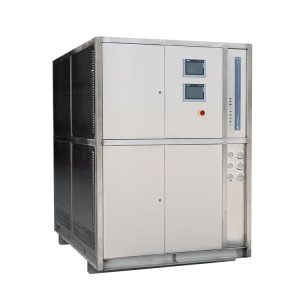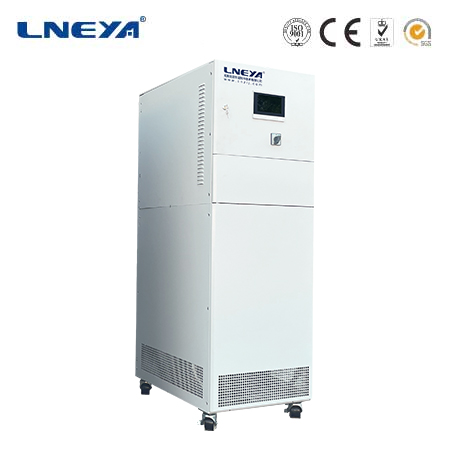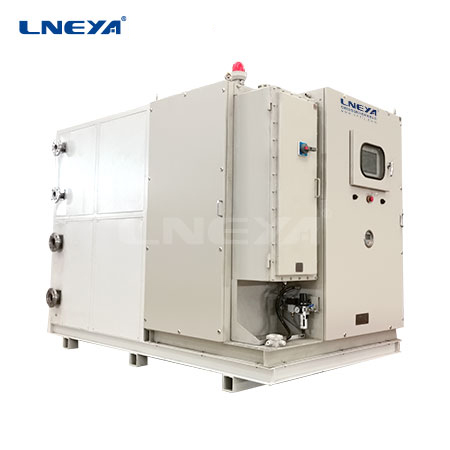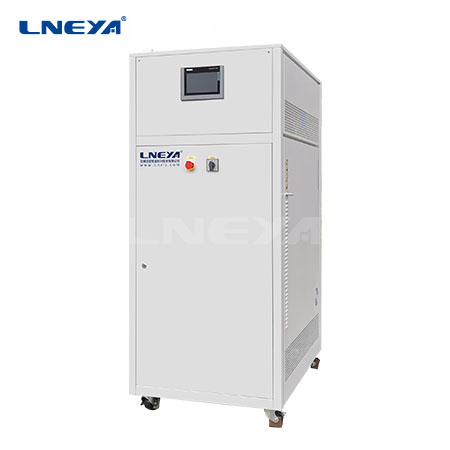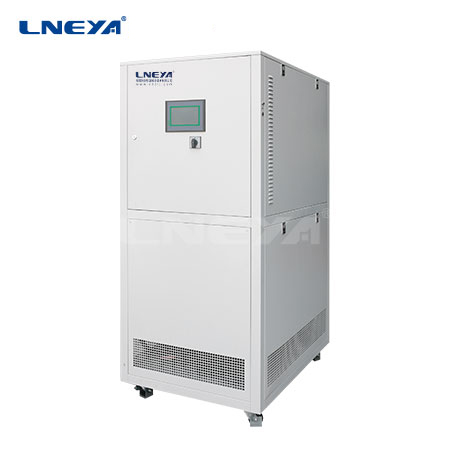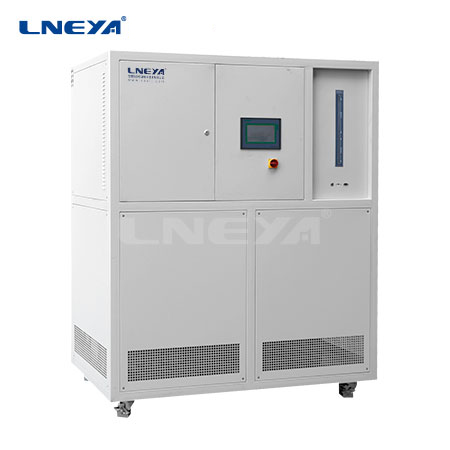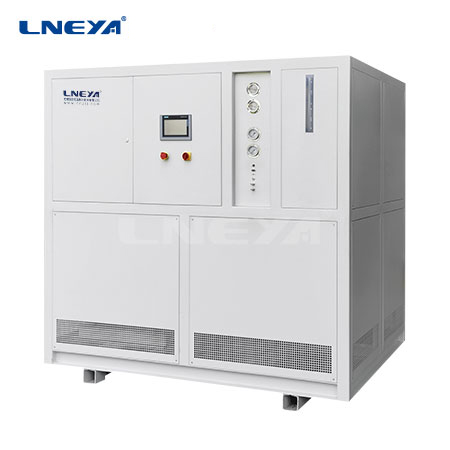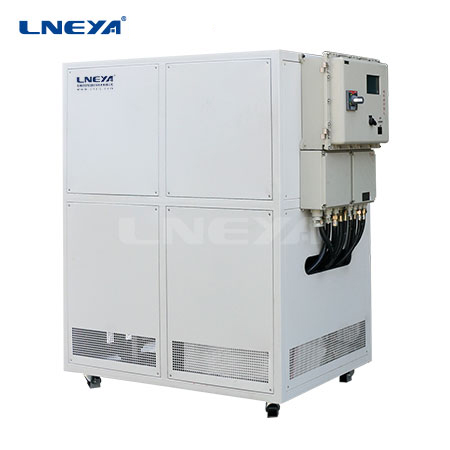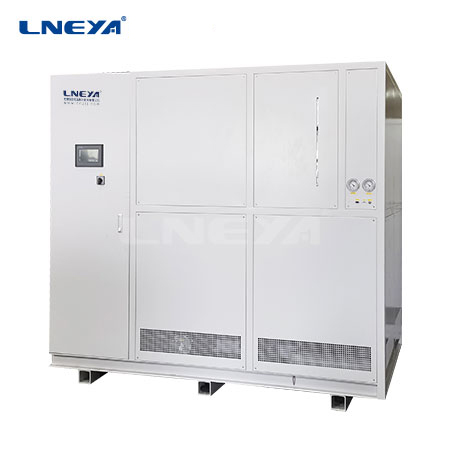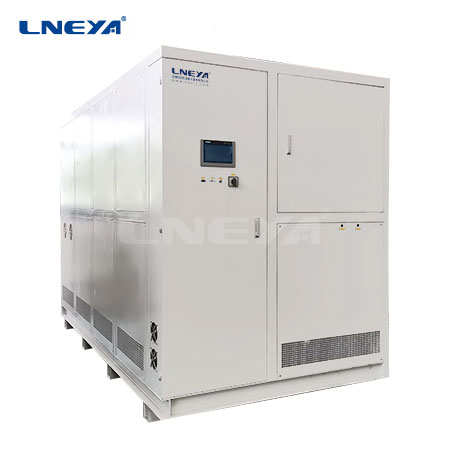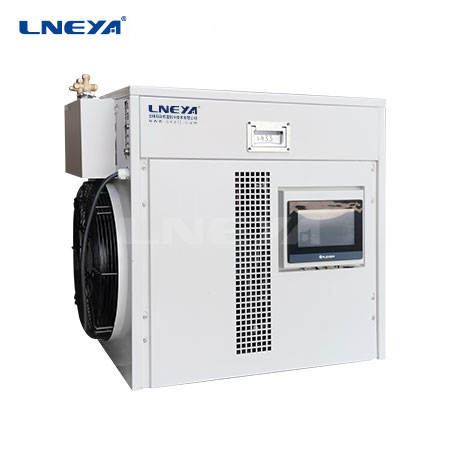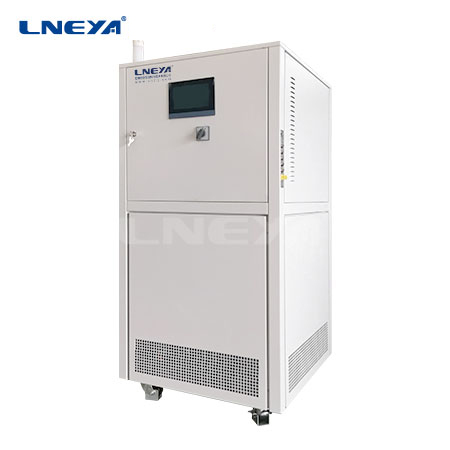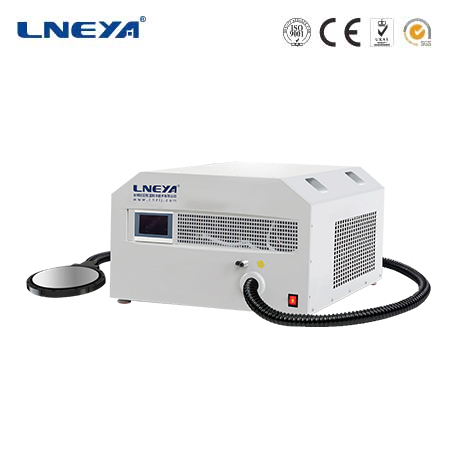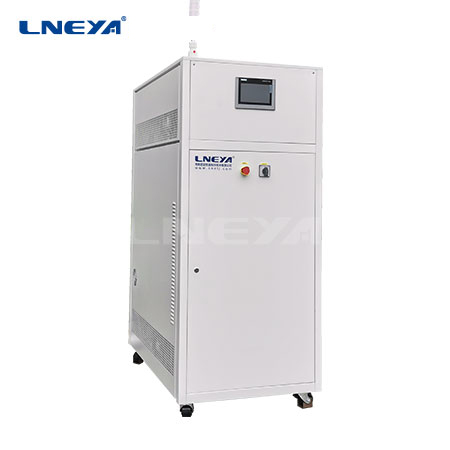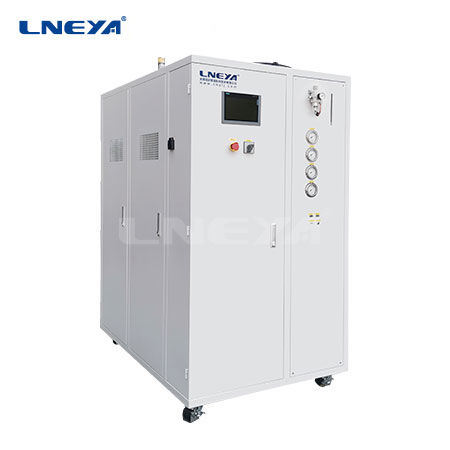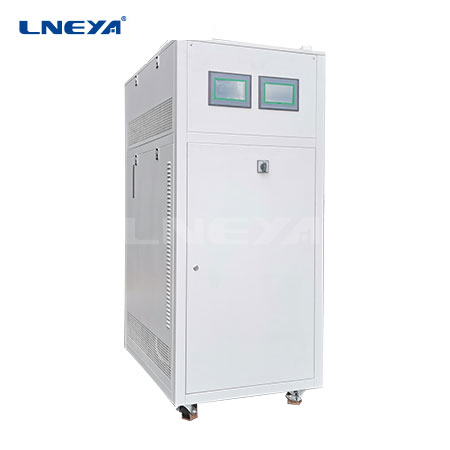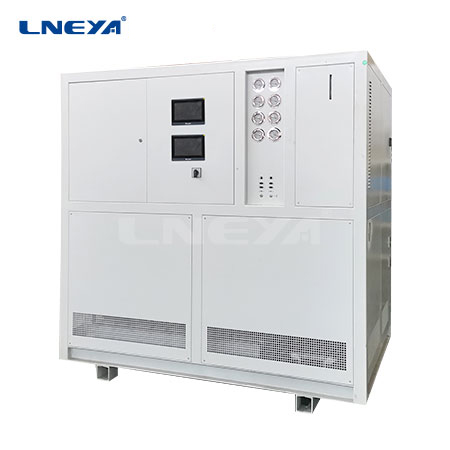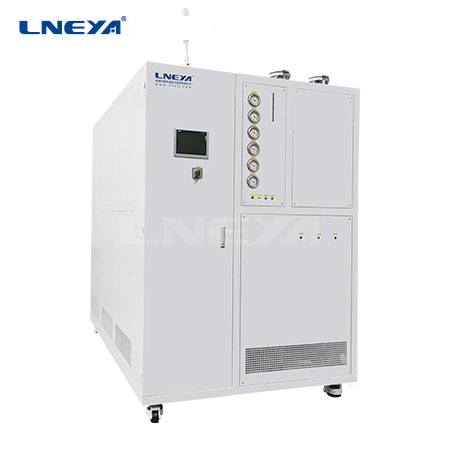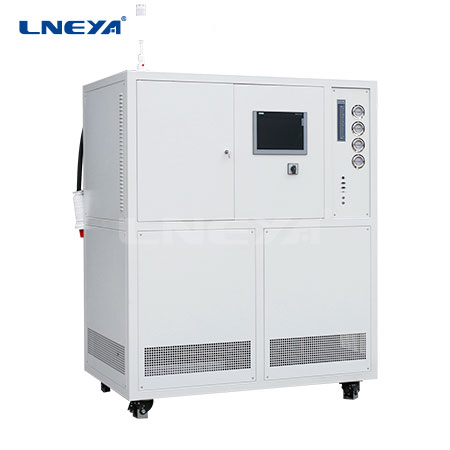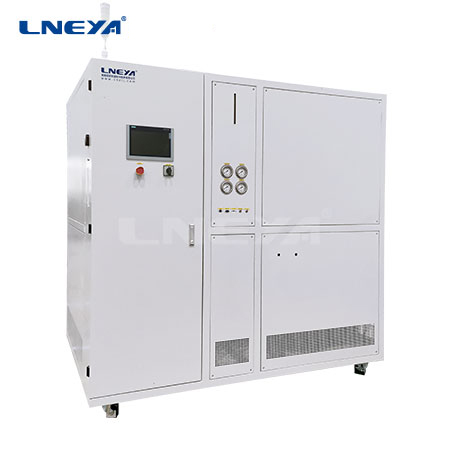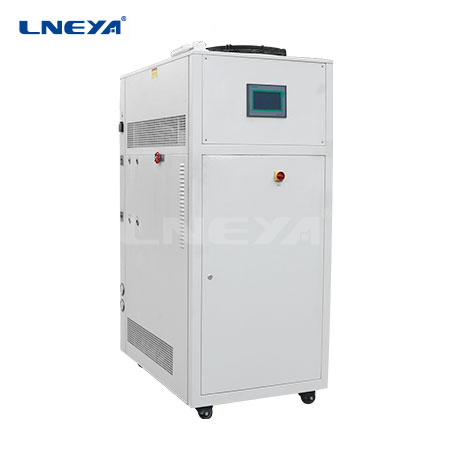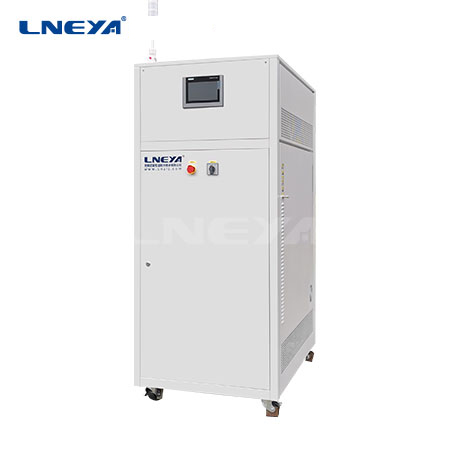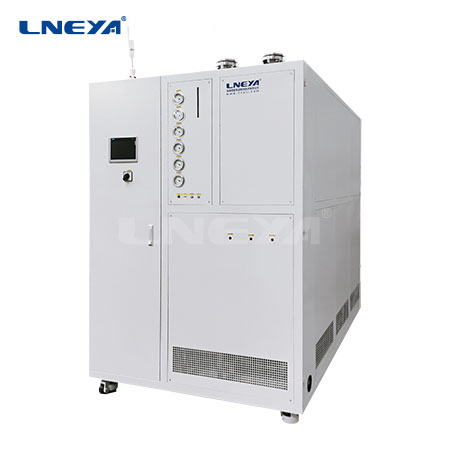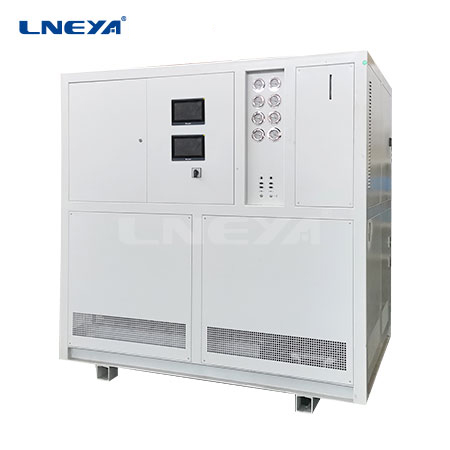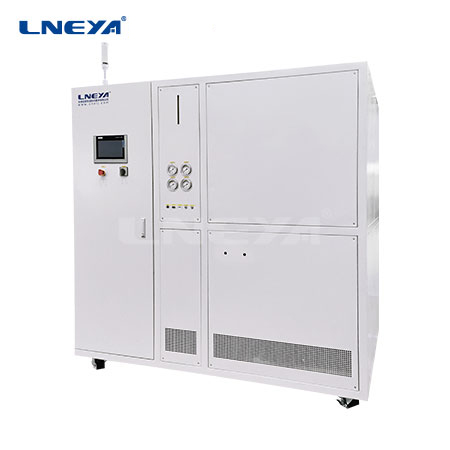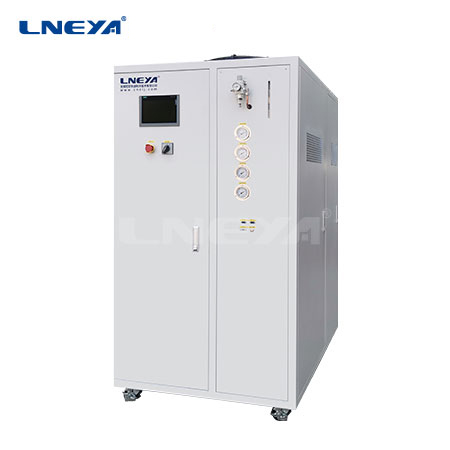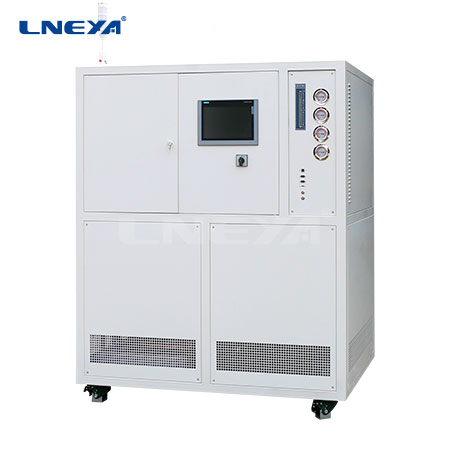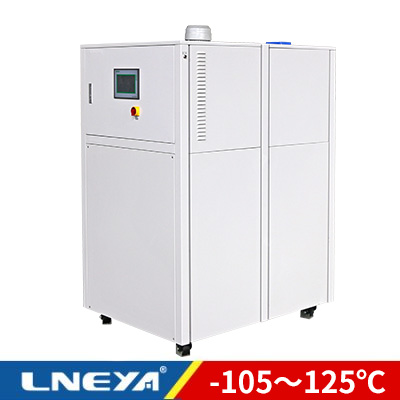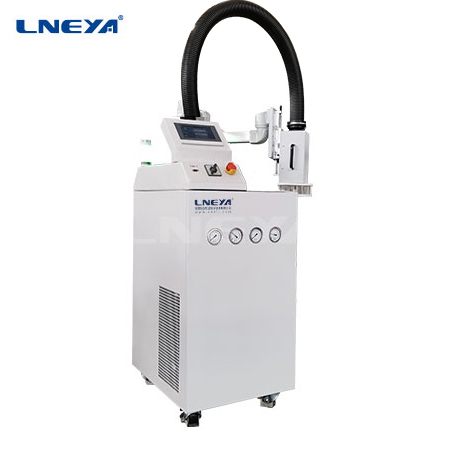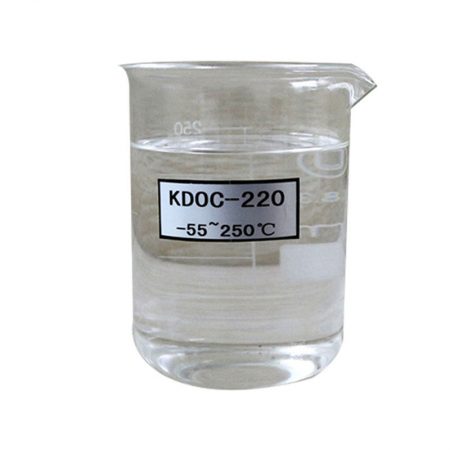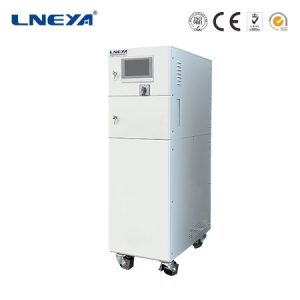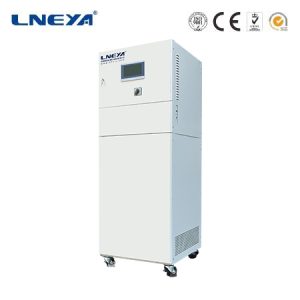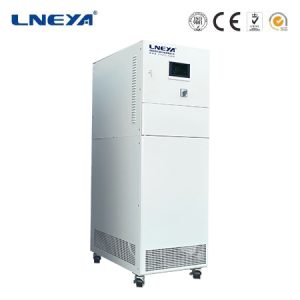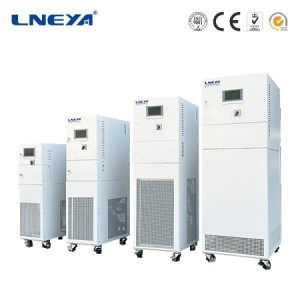Circulating Cooling System
Contact us today for the perfect temperature control solution
The four major components of the circulating cooling system: compressor, condenser, throttling mechanism, and evaporator.
The functions of the four major components of the circulating cooling system
Compressor-adiabatic compression function: compresses medium-low temperature and low-pressure refrigerant into high-temperature and high-pressure superheated steam.
Condenser – Condensation (heat release): The high-temperature and high-pressure gaseous refrigerant dissipates heat through heat exchange, and the refrigerant becomes a medium-high-temperature and high-pressure liquid.
The throttling mechanism has a throttling effect: through the throttling effect, the medium-high temperature and high-pressure liquid refrigerant is turned into a low-temperature and low-pressure gas-liquid two-phase refrigerant.
Evaporator-evaporation effect (heat absorption): The refrigerant absorbs heat when flowing through the evaporator, and turns the refrigerant into a medium-low-temperature and low-pressure gaseous refrigerant through the action of the heat exchanger.
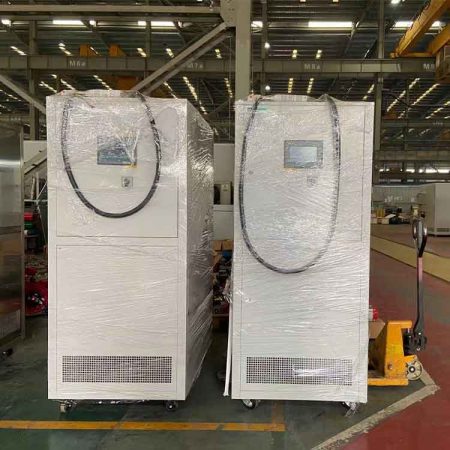
The role of other components of the circulating cooling system
High and low pressure controller: The high and low pressure protector of the refrigeration system. When the high pressure is too high or the low pressure is too low, an alarm signal is generated.
Oil separator: Separates the refrigerant and refrigeration oil in the exhaust pipe. The refrigerant continues to enter the condenser along the pipeline, and the separated refrigeration oil returns to the compressor through the oil return pipe.
Condensing pressure regulating valve: It plays the role of regulating the condensing pressure. It can prevent the condensing pressure from being too high and causing high-pressure protection. It can also prevent the condensing pressure from being too low and causing insufficient pressure difference between the front and rear of the throttling structure. Of course, not every system needs this valve.
Reservoir: Stores excess refrigerant in the refrigeration system.
Under low-temperature conditions, the refrigerant circulating in the refrigeration system will be much lower than the refrigerant under normal temperature conditions. If there is no liquid reservoir at this time, the excess refrigerant will be stored in the condenser, accounting for most of the replacement time. thermal area.
Ball valve: A manually opened and closed valve that can cut off the refrigerant circuit.
01) It can be used to close the refrigerant in the condenser or liquid receiver when replacing the filter or thermal expansion valve, so that there is no need to drain the refrigerant of the entire system.
02) Add refrigerant to the system: When debugging a new machine, all the refrigerant cannot be added in the shutdown state. At this time, you need to turn on the compressor and suck the refrigerant into the system through the suction pipe of the compressor. However, many normal temperature During working conditions, the pressure of the evaporator is actually not low or even higher than the pressure of the refrigerant tank, and the refrigerant cannot be added either. Then at this time we can close the ball valve and switch the refrigerant coming from the condensing side, and the compressor can suck the refrigerant into the system.
03) Recycle refrigerant
Drying filter: As the name suggests, it plays the role of removing moisture and filtering impurities in the refrigeration system. This filter is placed in front of the expansion valve to prevent impurities from entering the valve core and blocking the expansion valve.
Solenoid valve: An electric component that can cut off the refrigeration pipeline manually or automatically; it also plays a great role in the refrigeration system.
Evaporation pressure regulating valve: mainly prevents the evaporation pressure from being too high, causing compressor failure.
Crankcase pressure regulating valve: It can also be called suction pressure regulating valve to prevent excessive suction pressure from causing excessive load on the compressor and damaging the compressor.
The evaporation pressure regulating valve and crankcase pressure regulating valve are not required by everyone’s system. Generally, in small systems, we can use a thermal expansion valve with MOP function instead.
Suction filter: Installed on the suction pipe to filter impurities in the refrigeration system to prevent them from entering the compressor and causing compressor failure.
We provide complete temperature control systems design and manufacturing. From standard models to complete customized products up to 900 tons. We specialize in customer service and are dedicated to helping each customer have the optimal temperature control system for their specific need.
We provide non-standard customized solutions. Both single cooling chillers and cooling & heating combo units are available.
Email: info@lneya.com WeChat ID: +8615251628237 WhatsApp: +86 17851209193

Recirculating Chillers / Refrigerated Circulator
The chiller can be widely used in various industries and laboratories, and supports customized design.
| Temperature range | -25°C ~ +30°C series | -45°C ~ +30°C series | -60°C ~ -20°C series | -80°C ~ -20°C series | -120°C ~ -70°C series | ||||
| Cooling Capacity | 0.8 ~ 30kW | 0.75 ~ 12kW | 0.4 ~ 6kW | 0.2 ~ 6kW | 0.3 ~ 5kW | ||||
| Note: Any temperature range from -150℃ ~ +350℃ and any cooling capacity can be customized | |||||||||
 Water Chillers / Small Chillers
Water Chillers / Small Chillers
The chiller can be widely used in various industries and laboratories, and supports customized design.
| Temperature range | -18°C ~ +30°C | +5°C ~ +35°C series | |||||||
| Cooling Capacity | 0.35 ~ 0.9kW | 1.8 ~ 50kW | |||||||
| Note: Any temperature range from -150℃ ~ +350℃ and any cooling capacity can be customized | |||||||||

Low Temperature Chillers
We specialize in the production of low-temperature chillers with a temperature control range as low as -150°C, which can meet the refrigeration needs of different industries.
| Temperature range | -25°C ~ -5°C series | -45°C ~ -10°C series | -60°C ~ -10°C series | -80°C ~ -30°C series | -110°C ~ -50°C series | -150°C ~ -110°C series | |||
| Cooling Capacity | 12 ~ 360kW | 6 ~ 180kW | 6 ~ 180kW | 4 ~ 180kW | 2 ~ 120kW | 2.5 ~ 11kW | |||
| Note: Any temperature range from -150℃ ~ +350℃ and any cooling capacity can be customized | |||||||||

High Temperature Chillers
The chiller can be widely used in various industries and laboratories, and supports customized design.
| Temperature range | +5°C ~ +40°C | -25°C ~ +40°C | -45°C ~ +40°C | -80°C ~ +80°C | -100°C ~ +80°C | ||||
| Cooling Capacity | 6 ~ 40kW | 2 ~ 15kW | 1 ~ 8kW | 0.6 ~ 3kW | 1.5 ~ 3kW | ||||
| Note: Any temperature range from -150℃ ~ +350℃ and any cooling capacity can be customized | |||||||||

Cooling and Heating Chillers
Temperature Control Range: -120°C to +350°C
cooling and heating thermostat, widely used in various industry.
| Temperature range | -10 ~ +150°C series | -25 ~ +200°C series | -25 ~ +300°C series | -45 ~ +250°C series | -45 ~ +300°C series | -60 ~ +250°C series | -60 ~ +300°C series | -70 ~ +250°C series | -80 ~ +250°C series | -90 ~ +250°C series | -100 ~ +100°C series | ||
| Cooling Capacity | 1.5 ~ 15kW | 1 ~ 200kW | 1 ~ 200kW | 0.45 ~ 200kW | 0.9 ~ 25kW | 0.25 ~ 60kW | 0.75 ~ 25kW | 0.4 ~ 15kW | 0.3 ~ 80kW | 0.2 ~ 80kW | 0.45 ~ 80kW | ||
| Note: Any temperature range from -150℃ ~ +350℃ and any cooling capacity can be customized | |||||||||||||

Recirculating Heater Chillers
Temperature Control Range: -45°C to +250°C
| Temperature range | -25°C ~ +200°C series | -45°C ~ +250°C series | |||||||
| Cooling Capacity | 1 ~ 15kW | 0.25 ~ 15kW | |||||||
| Note: Any temperature range from -150℃ ~ +350℃ and any cooling capacity can be customized | |||||||||
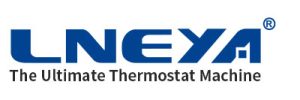 LNEYA
LNEYA
 简体中文
简体中文










